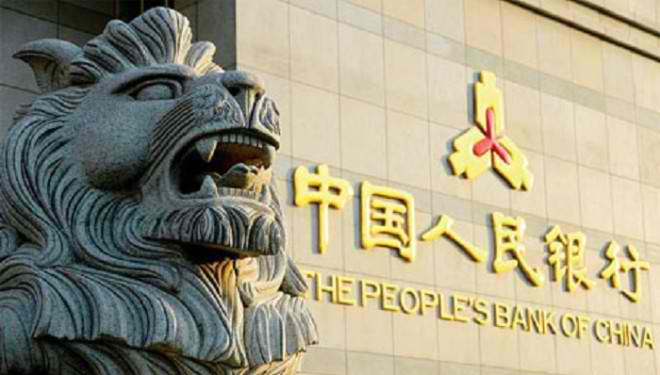China : Central Bank urges banks to spread out tenors of loans

SHANGHAI : China’s central bank has urged banks to spread out the tenors of their loans, hinting at its displeasure with a recent trend of banks focusing on overnight lending, banking sources told Reuters on Thursday. Imbalances in China’s financial system are increasing as the economy slows, complicating challenges facing policymakers as they try to clamp down on riskier lending practices without roiling markets.
The People’s Bank of China (PBOC) met with major banks on Wednesday to discuss management of liquidity in Chinese money markets amid rising speculation over whether Beijing would continue its monetary policy easing or not, the sources said.
The PBOC declined comment, but has clearly taken aim at the risks of short-term lending in a series of moves this week. In particular, traders said the central bank may be worried that too many small banks are using short-term borrowing to fund speculative bets in the bond market.
“Banks’ overnight lending in the money markets has stood around 90 percent of their total lending since the start of this year,” said a source, who declined to be identified because he was not authorized to talk to media.
To take the lead to encourage banks to lend for longer periods of time, the central bank injected cash into money markets through 14-day reverse repo agreements for the first time since February on Wednesday, in addition to employing its typical tool the seven-day reverse repo.
On Thursday, the bank again conducted both seven and 14-day reverse repos, adding 220 billion yuan ($ 33.05 billion) of money market liquidity in the largest single-day injection since June 27 to ease fears of a credit crunch. While China’s economic growth has cooled to 25-year lows, Beijing appears reluctant to pursue further broad-based monetary policy easing amid worries that pumping too much cash into the system could further boost already high corporate debt, put more pressure on the yuan currency and create speculative bubbles in property and financial markets.
A growing number of economists believe that a massive bank bailout may be inevitable in China as bad loans mount. The PBOC has not cut reserve requirement ratios (RRR) at banks since March, and has not lowered long-term guidance interest rates since last October, though it has offered targeted funds to more vulnerable sectors.
At the Wednesday meeting, the PBOC told banks that it would keep monetary policy stance basically unchanged – wording that traders believed implied that the central bank would maintain a relatively loose monetary stance but only inject large amounts of longer-term cash if it sees a real need.
The central bank also told banks that it would consider using reverse repos longer than 14 days to help adjust the structure of lending in the money markets, the sources said, declining to give further details.
Analysts say rising leverage in the short-term repo market helped drive a bull run in Chinese onshore bonds this summer which has begun to derail in recent days. Prior to this week, liquidity in China’s financial system had been described by most as ample with few signs of stress, but money rates jumped on Wednesday after the central bank’s 14-day cash injection.
On Thursday, the volume weighted average of the seven-day repo CN7DRP=CFXS was down seven basis points (bps) in early trade at 2.42 percent, after the highest average close Wednesday since February. The 14-day was down 12 bps and the one-day was down six bps.







